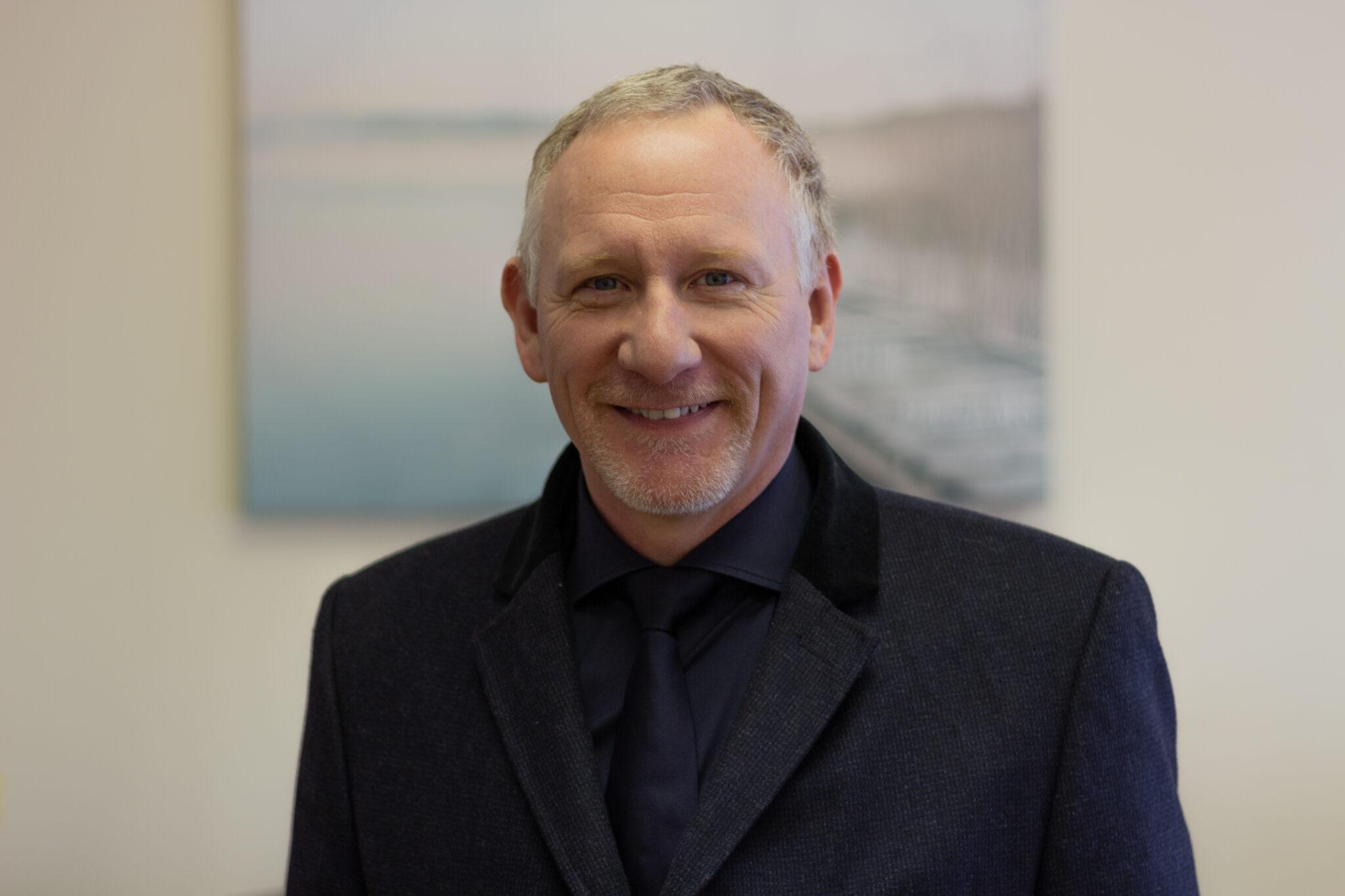Mark Goodway | CEO | The Matthew Tree Project

Mark Goodway
CEO

" The success of a work such as this can be measured in many ways. The charity’s positive impact on each person, family, or household it engages with is just one. By this measure, the charity was being successful straight away. "
Rebuilding Lives of Millions
On a Sunday morning in the summer of 2010, Mark Goodway was on his way to the church when he stopped at the traffic lights and noticed an elderly homeless gentleman to his left lying on the pavement motionless. He was dressed in jacket, tie, and shirt. Admittedly, all had seen much better days, but Mark felt it was an admirable attempt to retain at least some degree of dignity in the face of such humiliation.Mark noticed people walking by him, seemingly unaware of the man on the floor, and it made Mark realize that this man was invisible to people who had no time to take on additional problems. When Mark reached his church and sat on his chair, he realized he was no different than anyone who passed the motionless man! This feeling changed him. It transformed his mindset, intention, and responsibilities towards those in need. Mark knew he had to help those in need whichever way he could.
Mark established The Matthew Tree Project and set about an intense task of research to understand what was already being done in poverty alleviation, what was working, and what was not. It became apparent that many charities and the welfare state were extensively involved in offering a broad spectrum of services, but also that some people were falling through the gaps.
It seemed to Mark that the best way to add value to what was already happening would be to create a social change model that caught the people who were falling through the gaps while, at the same time, using the working knowledge that would be gained in this activity to engage with policymakers to close the gaps.
It also became clear that people falling into financial crisis were inevitably at risk of becoming homeless. At that time, the average cost to re-house homeless people was estimated to be circa. £20k plus the human cost of someone going through such an experience, which some, sadly, never recover from. It was, therefore, important to Mark that what he created engages early enough to prevent homelessness.
This would save the state a significant amount of money and also spare vulnerable people the pain and misery of going through the experience of being homeless.
The first challenge was identifying and engaging people before it was too late. It seemed common sense to Mark that anyone in this situation would miss meals as all available funds are swallowed up by rent, rent arrears, debts, utility bills, and fines. This is why food became part of The Matthew Tree Project offering. Providing food aid to the’vulnerable housed’, people would come. By offering food on a long-term basis, i.e., for as long as there is a need, an environment is created to properly understand the underlying causes and barriers preventing progress. This ‘long-term’ approach was unique at that time, and Mark and his team believe it still is even now, but it was the most critical element as one can only get to know someone and gain their trust when they invest the necessary time. It was important to Mark that no one is ever turned away and that clients are in control, which includes deciding when to close their case. This is what has been created.
After 11 months of intensive research and learning, Mark launched The Matthew Tree Project in June 2011.
The success of a work such as this can be measured in many ways. The charity’s positive impact on each person, family, or household it engages with is just one. By this measure, the charity was being successful straight away. Through the open and honest conversations, the frontline team has with the clients, as new ‘needs’ are identified, work goes into how the charity can best help. Over the years, more people are being helped in many more ways, so the measure of success is constantly growing.
The Matthew Tree Project is inspired mainly by Mark’s Christian faith with an ethos underpinned by Matthew 25 vs 31-46; Mark 12 vs 28-31; James 2 vs 14-17. The Matthew Tree Project is the living embodiment of these passages.
Helping People in Need
At the heart of The Matthew Tree Project’s innovative and pioneering award-winning multi-agency social mobility change model (Rebuilding Lives) are the people it supports, who are empowered and in control of their unique journey. Rebuilding Lives is shaped by the people it seeks to help. It works hard to bring a wide range of expertly joined-up service elements together to create a unique and personally tailored ‘full support package’ wrapped around each vulnerable household in the program.
The ethos and culture of The Matthew Tree Project come from Mark, are fiercely protected, and percolate through every activity, member, and aspect of the organization. The organizational chart is presented ‘upside down’ compared to standard practice, which reinforces the culture that the most important people, those who know best what we need to do for them, are the clients; the second most important people are the volunteers – those who give their time freely to help those less fortunate; third is the staff; and fourth is the board of trustees – whose job is to support everyone involved in the charity. Volunteers and staff are empowered to do what they need to meet the client’s needs, as determined by the clients. Management is empowered to do what is needed to provide the frontline team (volunteers and staff) with the resources and tools they need to deliver the services and support clients need. This fluid and evolutional organization model freely operates within the charity commission regulatory framework and the financial constraints of the charity.
Rebuilding Lives is a Truly Holistic Tripartite Crisis Support Programme addressing the multiple and complex underlying causes as well as the effects of poverty, characterized by the treatment of the whole person, considering 1) mental, 2) physical, and 3) social factors, rather than just the symptoms.
The ‘Rebuilding Lives Crisis Support Programme positively impacts self-confidence, self-worth, and self-esteem and converts hopelessness into hope and belief that a healthier, happier, wealthier future is possible and worth fighting for. The Rebuilding Lives Programme builds resilience and is transformational.
The Rebuilding Lives program is delivered Monday to Friday from the charity’s Holistic Crisis Support Hub, creating a community amongst its clients and a sense of value, belonging, and ownership. This reduces isolation by bringing people together in a safe and socially vibrant environment to help themselves and each other and engage positively in the broader community where they live.
Rebuilding Lives provides immediate relief and substantive & transformational change. Immediate relief includes stabilizing the crisis, i.e., avoiding becoming homeless, stopping missing meals, and keeping the house warm. The substantive change includes resolving debt and managing money, maximizing income and reducing expenditure, staying in addiction recovery, eating better, feeling better about self, having more control over life choices, learning new skills, not being isolated, and engaging more in the broader community. Transformational change includes higher aspirations, self-belief, a positive shift in worldview, caring more about others, and a better quality of life.
Being Recognized as A True Visionary
National recognition has been achieved by way of an MBE awarded to Mark, Founder & CEO of The Matthew Tree Project, in the Kings Birthday Honours List, June 2023, for Services to Charity and to Disadvantaged People. Mark accepted the honor on behalf of the hundreds of people who have been involved with and have supported The Matthew Tree Project since 2010, without which none would have been possible.
Ronald Reagan once famously said, “’There is no limit to the amount of good you can do if you don’t care who gets the credit.”
Mark insisted that the model created is freely shared ‘open source’ with others in the hope that it will be copied and adopted – regardless of whether credit to The Matthew Tree Project is given. He believes this is the fastest way to massively adopt effective work practices to achieve systemic ‘change’ nationally.
Providing food for people in need is a critical element of the work of The Matthew Tree Project, and since 2010, there have been others performing this service, known as Foodbank. Some are small local practitioners, and some are large national charities. Mark’s approach differed as he was adamant that any food aid offered included helping people address the underlying root causes of their problems and servicing the symptoms – the lack of food. This has been created through the Rebuilding Lives Programme, making Mark’s vision and work pioneering.
























































